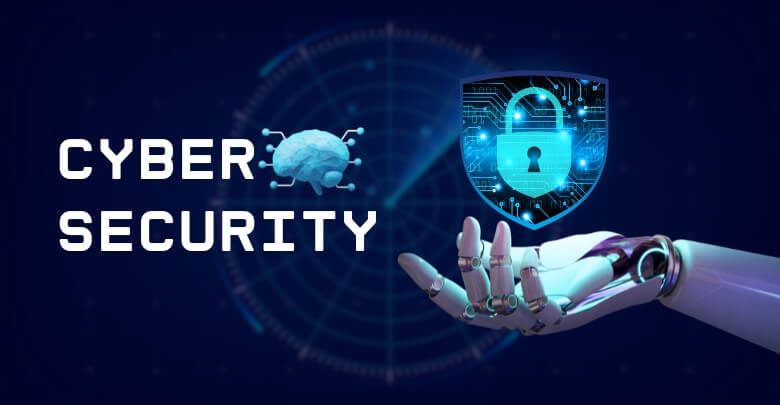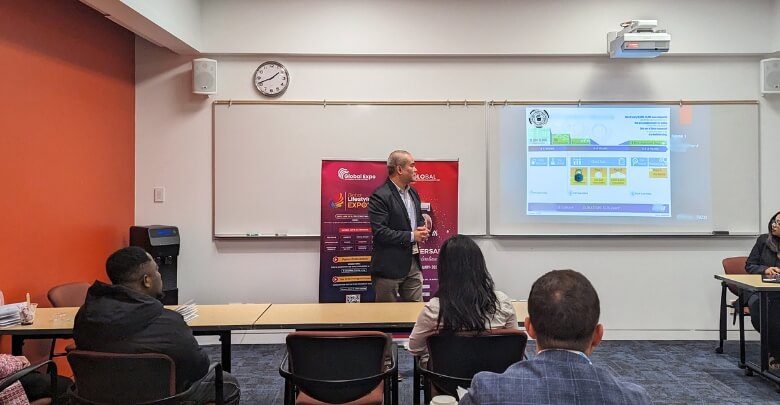Cybersecurity conferences are more than just gatherings; they’re crucial hubs for tackling the latest security challenges. These events bring together experts to address emerging threats and innovative solutions. Curious about what exactly happens there?
When exploring “What Are the Key Topics and Themes Covered at Cyber Security Conference?”, you’ll find in-depth discussions on threat intelligence and innovative defense strategies. These topics highlight the ongoing battle against cyber threats and the advancements in technology aimed at safeguarding data.
Knowing about these themes can be enlightening for anyone in the field. Continue reading to gain a deeper insight into how these key topics shape the future of cybersecurity and why they’re essential for staying ahead.
The Evolution of Cyber Security
Cybersecurity has seen significant changes over the years, shifting in response to emerging technologies and threats. Its evolution is a complex story of innovation, adaptability, and heightened awareness.
In the early days of computing, cybersecurity-focused mainly on preventing accidental breaches. As technology grew, so did malicious activities, requiring more sophisticated defenses. This era saw the birth of firewalls, anti-virus software, and other protective measures.
The dawn of the internet brought new challenges as connectivity increased vulnerabilities. Governments, corporations, and individuals recognized the need for comprehensive security protocols. Efforts were made to standardize practices and regulations, enhancing the global security landscape.
Recently, the rise of cloud computing and IoT has further complicated cybersecurity. With more devices connected, the attack surface has expanded dramatically.
Engaging in events such as the upcoming cyber security conference Canada can help address these complexities. Adapting to this complexity requires constant innovation and collaboration among security professionals, shaping the ongoing evolution of the field.
What Are the Key Topics and Themes Covered at the Cyber Security Conference?
Cybersecurity conferences are vital for staying ahead in a fast-changing digital landscape. These events are more than just networking opportunities; they are platforms where experts, practitioners, and enthusiasts converge to discuss pressing issues, share innovations, and address emerging threats. Here’s an overview of key subjects that are typically addressed.
1. Threat Intelligence and Cyber Threats
One of the central themes at cybersecurity conferences is the discussion of current and emerging cyber threats. This includes detailed analyses of recent high-profile cyber-attacks, threat actors’ tactics, techniques, and procedures (TTPs), and the overall threat landscape.
Experts share insights into how these threats evolve, providing strategies for detection, prevention, and response. Knowing the key topics and themes at cyber security conferences helps organizations prepare their defenses accordingly.
2. Security Frameworks and Best Practices
Conferences often focus on established and emerging security frameworks designed to protect information systems. These frameworks, such as the NIST Cybersecurity Framework or ISO/IEC 27001, provide structured approaches to managing and mitigating cybersecurity risks.
Discussions include how to implement these frameworks effectively, adapt them to specific organizational needs, and integrate them into existing security strategies. Attendees gain practical knowledge on applying best practices to enhance their security posture.
3. Incident Response and Management
Handling cybersecurity incidents swiftly and effectively is vital for minimizing damage. Cybersecurity conferences typically cover strategies for incident response and management, including the development of response plans, communication strategies, and recovery processes.
This theme includes case studies of real-world incidents, providing insights into lessons learned and best practices for managing and mitigating the impact of cyber incidents.
4. Cloud Security
As organizations increasingly migrate to cloud environments, cloud security becomes a critical topic. Conferences address the unique challenges and risks associated with cloud computing, such as data breaches, misconfigured cloud settings, and shared responsibility models.
Experts discuss strategies for securing cloud environments, including encryption, access controls, and cloud security best practices. To keep sensitive data safe and ensure compliance in a cloud-centric world, you need to understand cloud security.
Application development requires stringent security measures. Application security focuses on finding and fixing security flaws in software. It’s a crucial practice in the software development lifecycle.
5. Emerging Technologies
The integration of emerging technologies such as artificial intelligence (AI), machine learning (ML), and the Internet of Things (IoT) into various sectors introduces new cybersecurity challenges and opportunities. Conferences explore how these technologies impact security, including their potential for both enhancing and compromising security measures.
Sessions on this theme provide insights into how to leverage these technologies to improve security while managing associated risks.
6. Regulatory Compliance and Data Privacy
With increasing regulatory requirements and growing concerns over data privacy, compliance has become a significant focus at cybersecurity conferences. Discussions cover the latest regulations, such as GDPR, CCPA, and other data protection laws, and their implications for organizations.
Experts provide guidance on achieving and maintaining compliance, addressing privacy concerns, and implementing practices that protect both organizational and customer data.
7. Cybersecurity Skills and Training
Developing and retaining skilled cybersecurity professionals is a persistent challenge. Conferences often feature sessions on skills development, training programs, and career advancement opportunities in cybersecurity.
This theme includes discussions on the current skills gap, the importance of continuous education, and resources for staying current with industry trends and technologies. It’s an opportunity for attendees to discover new training resources and career development paths.
8. Policy and Governance
Effective cybersecurity requires strong governance and policy frameworks. This topic covers the development and implementation of cybersecurity policies, risk management strategies, and governance structures.
Sessions may focus on creating policies that align with organizational goals, managing cybersecurity risk across different departments, and ensuring that governance practices support robust security measures.
9. Innovation and Future Trends
Looking ahead, conferences often highlight innovative solutions and future trends in cybersecurity. This includes emerging technologies, new research findings, and visionary approaches to addressing cybersecurity challenges.
Attendees gain insights into what the future holds for cybersecurity, preparing them to adapt to upcoming changes and leverage new tools and strategies.
Knowing about what are the key topics and themes covered at cyber security conference helps participants stay informed and prepared. By engaging with these themes, organizations and individuals can enhance their cybersecurity strategies, respond to emerging threats, and contribute to the collective effort to secure the digital world.
How to Identify the Right Cybersecurity Conference to Attend?
Choosing the right Cybersecurity Conference can greatly enhance your knowledge and network within the field.
Follow these steps to identify the conference that aligns best with your interests and professional needs:
Step-1 Identify Your Goals and Interests
Consider what you aim to achieve by attending a conference. Whether it’s learning new skills or networking, your goals will guide your choice.
Step-2 Research Conference Themes and Topics
Look into the themes and topics that each conference covers. This will help you find one that aligns with your professional interests and current projects.
Step-3 Check the Speakers and Workshops
Investigate the backgrounds of speakers and the content of workshops. High-quality presenters and relevant sessions will enhance your learning experience.
Step-4 Assess the Location and Budget
Consider the location of the conference and your budget for attending. Some conferences may offer virtual attendance options, making them more accessible.
Step-5 Look for Peer Reviews and Recommendations
Seek out reviews from previous attendees or ask colleagues for recommendations. Their insights can provide a clearer picture of what to expect.
Step-6 Evaluate Networking Opportunities
Determine the networking opportunities, such as meet-ups or social events. These can be crucial for building connections in your field.
Step-7 Check for Continuing Education Credits
If you require continuing education credits. This can be an essential factor for professionals maintaining certifications.
Step-8 Review the Vendor Exhibits
If you’re interested in the latest tools and technologies, assess the vendor exhibits. This exposure can provide insights into cutting-edge cybersecurity solutions.
Step-9 Consider the Conference’s Reputation and History
Research the reputation and previous editions of the conference. A consistently well-regarded event is more likely to provide value.
Step-10 Align with Organizational Goals
If attending as a representative of your organization, ensure alignment with organizational goals. It ensures that the conference supports both personal and company objectives.
By following these steps, you can identify a Cybersecurity Conference that aligns with your interests but provides significant value to your professional development. Register for the chosen conference once you’ve discovered it. This secures your spot and ensures you can access all the valuable insights and networking opportunities it offers.
How to Prepare for a Cyber Security Conference?
Preparing for a cybersecurity conference can be a rewarding experience if approached thoughtfully. Here’s a step-by-step guide to help you make the most of the event.
Set Clear Objectives
Before the conference, define what you want to achieve. Are you looking to learn about new technologies, network with industry leaders, or explore career opportunities? Setting clear goals will help you stay focused and make the most of your time.
Research the Agenda
Review the conference agenda thoroughly. Identify sessions, workshops, and keynote speakers that align with your interests and goals. Make a schedule to ensure you attend the most relevant sessions and avoid conflicts. Researching topics related to cyber security conference sponsorship can also provide valuable insights into how industry players support such events.
Prepare Questions
Think about questions you want to ask the speakers or fellow attendees. This preparation will help you engage more deeply during sessions and networking opportunities. It’s also a great way to make the most of one-on-one interactions with experts.
Update Your Resume and LinkedIn Profile
If you’re exploring job opportunities or networking, ensure your resume and LinkedIn profile are up-to-date. Highlight your recent accomplishments and skills relevant to cybersecurity. This preparation will make it easier for others to understand your background and interests.
Bring Essential Materials
Pack your essentials, including business cards, a notebook, and a pen. Consider bringing a portable charger for your devices. Having these items on hand will make it easier to take notes, connect with new contacts, and stay organized.
Engage on Social Media
Follow the conference’s social media accounts and use the event hashtag to join discussions and stay updated on any changes or announcements. Engaging online can help you connect with other attendees before the event.
Plan Your Travel and Accommodation
Ensure your travel and accommodation arrangements are sorted well in advance. Double-check your reservations and plan your route to the conference venue. Arriving early can help you settle in and get familiar with the location.
Follow Up
After the conference, follow up with the contacts you made. Send personalized messages to thank them for their time and discuss any points of mutual interest. This follow-up helps maintain and build relationships beyond the event.
By following these steps, you’ll be well-prepared to maximize your experience at the cybersecurity conference and gain valuable insights and connections.
Frequently Asked Questions
Do cybersecurity conferences include discussions on new technologies?
Yes, cybersecurity conferences often highlight discussions on new technologies. They cover advancements like AI-driven security solutions, next-gen firewalls, and innovative threat detection tools, helping attendees stay ahead of evolving threats and enhance their security strategies. These updates keep everyone informed and prepared for future challenges.
Are there sessions focused on career development in cybersecurity?
Yes, many cybersecurity conferences offer sessions focused on career development. These include workshops on job hunting, panel discussions with industry experts, and networking opportunities to connect with potential employers. These sessions help attendees enhance their skills and advance their careers in the cybersecurity field.
What kind of expert panels are featured at cybersecurity conferences?
Cybersecurity conferences often feature expert panels including industry leaders, ethical hackers, and cybersecurity researchers. These panels discuss current threats, emerging technologies, and best practices, offering invaluable insights and real-world solutions. Engaging with these experts provides attendees with practical knowledge and strategic advice for enhancing their security posture.
How do cybersecurity conferences cover incident response strategies?
Cybersecurity conferences often dive into incident response strategies by showcasing real-world case studies, offering expert-led workshops, and discussing best practices for managing breaches. These sessions provide practical insights and actionable advice, helping professionals better prepare for and respond to cyber incidents effectively.
How do cybersecurity conferences address emerging threats?
Cybersecurity conferences tackle emerging threats by showcasing the latest research, trends, and technologies. Experts share insights on new vulnerabilities, discuss innovative defense strategies, and provide real-world case studies. These gatherings help professionals stay ahead of threats and refine their response strategies effectively.
Final Thoughts
Cyber Security Conferences offer a vital platform for collaboration, innovation, and education in the ever-evolving field of cybersecurity.
By examining, what are the key topics and themes covered at cyber security conference?, we recognize the breadth and depth of subjects ranging from Network Security to AI and Machine Learning in Cybersecurity.
The value in attending these conferences lies in the ability to stay ahead of emerging threats, grasp new technologies, and foster community collaboration.
Engaging with these critical topics benefits individual professionals and fortifies the global cyber defense framework.








